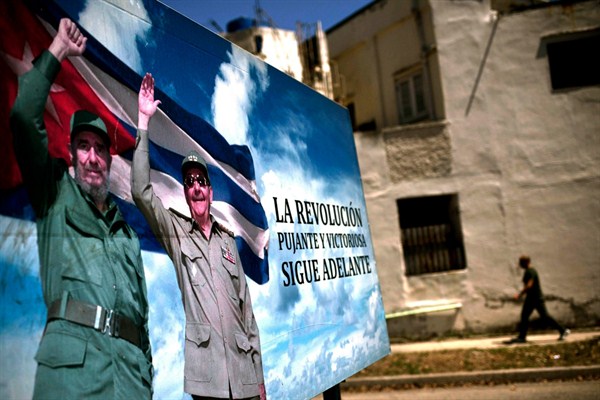For a man stepping down after half a century at the apex of Cuba’s government—first as the island’s longtime defense minister and vice president, then as president—Raul Castro was in good humor last week, looking relaxed and happy as he handed the presidency to his designated successor, Miguel Diaz-Canel. Departing from the prepared text of his valedictory speech in Havana, Castro cracked jokes, reminisced about the revolution and quipped that he planned to travel more, “since I’m supposed to have less work to do.”
There were no big surprises at the National Assembly meeting that installed Diaz-Canel as the first non-Castro to lead Cuba in six decades. Raul Castro did not decide at the last minute to stay in office, or sneak his son Alejandro into the presidency, as fevered commentary out of Miami kept predicting.
Instead, the central theme of the conclave was continuity. Diaz-Canel began his inaugural speech with a paean to Raul Castro’s leadership and a promise to continue his policies, especially the “updating” of the economy, which Diaz-Canel lauded as bringing “profound and essential structural and conceptual changes” to Cuba’s socialist model. He declared that Cuban foreign policy would “remain unchanged,” listing the restoration of diplomatic relations with the United States as one of Castro’s achievements. It was a signal that the Cuban leadership still sees value in improving relations with Washington, despite the fact that ties have deteriorated since President Donald Trump took office.

